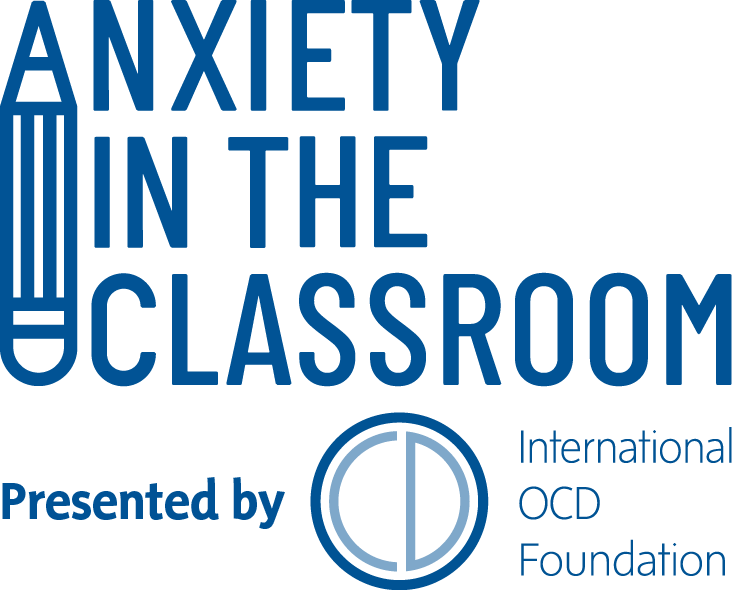Familiarize Yourself with School Accommodations
Whether your child gets an IEP or an IAP/504 plan, school-based accommodations will be a central element. Accommodations are helpful to students with anxiety/OCD because:
- They allow them to function in the school setting.
- They help them to stay in school.
Providing students with anxiety/OCD with accommodations and support in the classroom and school can minimize stress and help prevent school avoidance. In other words, school accommodations help level the playing field for students with anxiety/OCD while they continue on their recovery journeys.
Deciding which accommodations are put into place is usually a collaborative process between school personnel, parents/guardians, therapists, and/or the students themselves. It can still be helpful for parents/guardians to familiarize themselves with what accommodations could help their child and come prepared with their suggestions. Click here to find a large list of possible school accommodations.
Ongoing Communication
After the initial meeting(s), it may still be helpful for you to remain in contact with school personnel about your child. This can help to keep everyone on the same page, and to make any adjustments necessary as your child progresses with their anxiety/OCD journey.
Ongoing communication with school personnel can look like any of the following:
- Letting them know about any new or increased home stressors, such as a visiting relative or new pet, as it may lead to flare-ups, difficulty with assignments, etc.
- Keeping them apprised of any strategies you’ve found to be particularly effective in working with your child.
- Asking for clarification if you are ever unsure (e.g. how long assignments should take).
- Brainstorming ways to engage your child in school/the classroom based on strengths you notice at home.
- Proactive planning around field trips, as they represent a change in routine, and so may be a place where your child’s anxiety/OCD symptoms may flare up. Work together to come up with a Field Trip Plan, such as assigning your child a preferred teacher/chaperone or buddy to stick with, sending them off with a list of coping strategies, and/or allowing them to call home or their therapist if need be.
- Soliciting their help for the future - documenting effective classroom strategies that work for your child, for example, or asking advice on who the best teacher assignment might be for the following year.
It is important to remember that even with ongoing communication, your child is not their teacher’s only student. Have as much empathy for them as you can, and bear in mind that school personnel have a lot of responsibilities without a lot of support or resources. Stick to data and facts whenever you are communicating, and avoid judgment best you can.
Beyond Public Schools
You may be wondering if it might be better to take your child’s education outside of the publicly-funded setting. If a public school cannot meet your child’s needs with in-house support services, including those provided by an IEP or IAP, then it might be worth considering outside placements. However, because outside placements are costly and also remove a student from their “least restrictive environment” (which is the school district’s federal obligation to provide), these decisions are approached with great care by school districts and families alike. Consultation with and testing by an independent evaluator, in conjunction with school-based observation, is often necessary to obtain the information needed to determine whether an outside placement is required.
Another thing to remember about going beyond public schools is that if your child attends a private, parochial, or any other school that does not accept public funding, the school might not need to comply with the federal or state regulations. Note that some schools accept public funding in order to accommodate students with special education needs, so not every “private school” is exempt from federal regulations.
Addressing School Avoidance
School avoidance can be a common issue for students with anxiety/OCD. The School Avoidance Alliance has developed several helpful resources to help parents/guardians manage this issue in their youth, including a helpful guide to working with schools.




